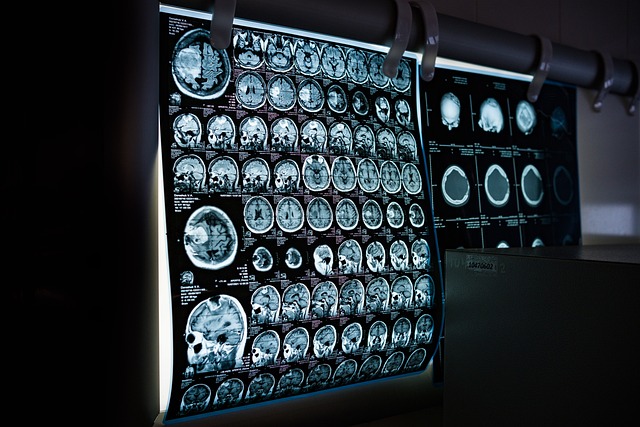Bowel Disease: Understanding Symptoms, Diagnosis, and Treatment Paths
Bowel diseases, including conditions like Crohn’s disease, ulcerative colitis, and irritable bowel syndrome (IBS), affect millions of people and can significantly impact daily life. These disorders range from mild to severe and often involve symptoms like abdominal pain, bloating, irregular bowel movements, and fatigue. This article explores the most common types of bowel disease, how they are diagnosed, and the range of treatments available—from dietary adjustments to medical therapies and surgical interventions. Supported by clear visuals and symptom diagrams, the guide empowers readers with reliable, compassionate information to help them better understand their condition and manage it effectively.

What are the main types of bowel diseases?
Bowel diseases can be broadly categorized into two main groups: inflammatory bowel diseases (IBD) and functional gastrointestinal disorders. The most common types of IBD are Crohn’s disease and ulcerative colitis. These conditions involve chronic inflammation of the digestive tract, leading to various symptoms and potential complications.
Crohn’s disease can affect any part of the gastrointestinal tract, from the mouth to the anus, but most commonly impacts the small intestine and the beginning of the large intestine. Ulcerative colitis, on the other hand, specifically affects the colon and rectum, causing inflammation and ulcers in the lining of these areas.
Irritable Bowel Syndrome (IBS) is a common functional gastrointestinal disorder characterized by abdominal pain and changes in bowel habits without visible signs of damage or disease in the digestive tract.
What are the symptoms of Crohn’s disease and ulcerative colitis?
The symptoms of Crohn’s disease and ulcerative colitis can be similar, making diagnosis challenging. Common symptoms for both conditions include:
-
Persistent diarrhea
-
Abdominal pain and cramping
-
Rectal bleeding or bloody stools
-
Fatigue
-
Unintended weight loss
-
Reduced appetite
Crohn’s disease may also cause mouth sores, anal fissures, and fistulas. Ulcerative colitis typically presents with more pronounced rectal bleeding due to the continuous inflammation in the colon and rectum. Both conditions can also lead to extraintestinal symptoms, affecting joints, skin, and eyes.
How are bowel diseases diagnosed?
Diagnosing bowel diseases involves a combination of medical history review, physical examination, and various diagnostic tests. The process typically includes:
-
Blood tests to check for inflammation markers and anemia
-
Stool tests to rule out infections and detect inflammation
-
Endoscopic procedures such as colonoscopy and upper endoscopy
-
Imaging studies like CT scans, MRI, or small bowel follow-through
-
Capsule endoscopy for examining the small intestine
For IBD, a colonoscopy with biopsy is often the gold standard for diagnosis, allowing doctors to visualize the intestinal lining and take tissue samples for analysis. IBS is typically diagnosed based on symptom criteria and the exclusion of other conditions.
What treatment options are available for IBS?
Treatment for IBS focuses on symptom management and improving quality of life. Options include:
-
Dietary modifications: Identifying and avoiding trigger foods, following a low-FODMAP diet
-
Stress management techniques: Cognitive-behavioral therapy, mindfulness, and relaxation exercises
-
Medications: Antispasmodics, antidiarrheal agents, or laxatives depending on predominant symptoms
-
Probiotics: To help balance gut bacteria
-
Fiber supplements: To regulate bowel movements
-
Peppermint oil: For reducing abdominal pain and bloating
Treatment plans are often personalized, combining different approaches to address individual symptoms and triggers effectively.
How does bowel disease affect digestion?
Bowel diseases can significantly impact the digestive process in various ways:
-
Nutrient absorption: Inflammation or damage to the intestinal lining can impair the absorption of essential nutrients, leading to malnutrition.
-
Motility changes: Conditions like IBS can alter gut motility, causing diarrhea or constipation.
-
Bacterial imbalance: IBD and other bowel diseases can disrupt the gut microbiome, affecting digestion and overall health.
-
Enzyme production: Pancreatic insufficiency, sometimes associated with Crohn’s disease, can lead to inadequate digestive enzyme production.
-
Intestinal permeability: Increased intestinal permeability, or “leaky gut,” may occur in IBD, potentially contributing to systemic inflammation.
Understanding these effects helps in developing comprehensive treatment strategies that address not only symptoms but also underlying digestive issues.
What are the latest advances in treating inflammatory bowel conditions?
Recent years have seen significant advancements in the treatment of inflammatory bowel conditions:
-
Biologic therapies: Drugs like anti-TNF agents, anti-integrins, and IL-12/23 inhibitors target specific inflammatory pathways.
-
Small molecule drugs: JAK inhibitors offer a new oral treatment option for moderate to severe ulcerative colitis.
-
Stem cell therapy: Research is ongoing into the use of mesenchymal stem cells for treating fistulas in Crohn’s disease.
-
Fecal microbiota transplantation: Shows promise in treating ulcerative colitis by restoring gut microbiome balance.
-
Precision medicine: Genetic and biomarker testing to tailor treatments to individual patients.
These innovative approaches aim to improve treatment efficacy, reduce side effects, and enhance the quality of life for patients with inflammatory bowel conditions.
In conclusion, bowel diseases encompass a range of complex conditions that require careful diagnosis and personalized treatment approaches. From common disorders like IBS to more severe inflammatory conditions like Crohn’s disease and ulcerative colitis, understanding the symptoms, diagnostic processes, and available treatments is crucial for effective management. As research continues to advance, new therapies and diagnostic tools offer hope for improved outcomes and quality of life for those affected by bowel diseases.
This article is for informational purposes only and should not be considered medical advice. Please consult a qualified healthcare professional for personalized guidance and treatment.




